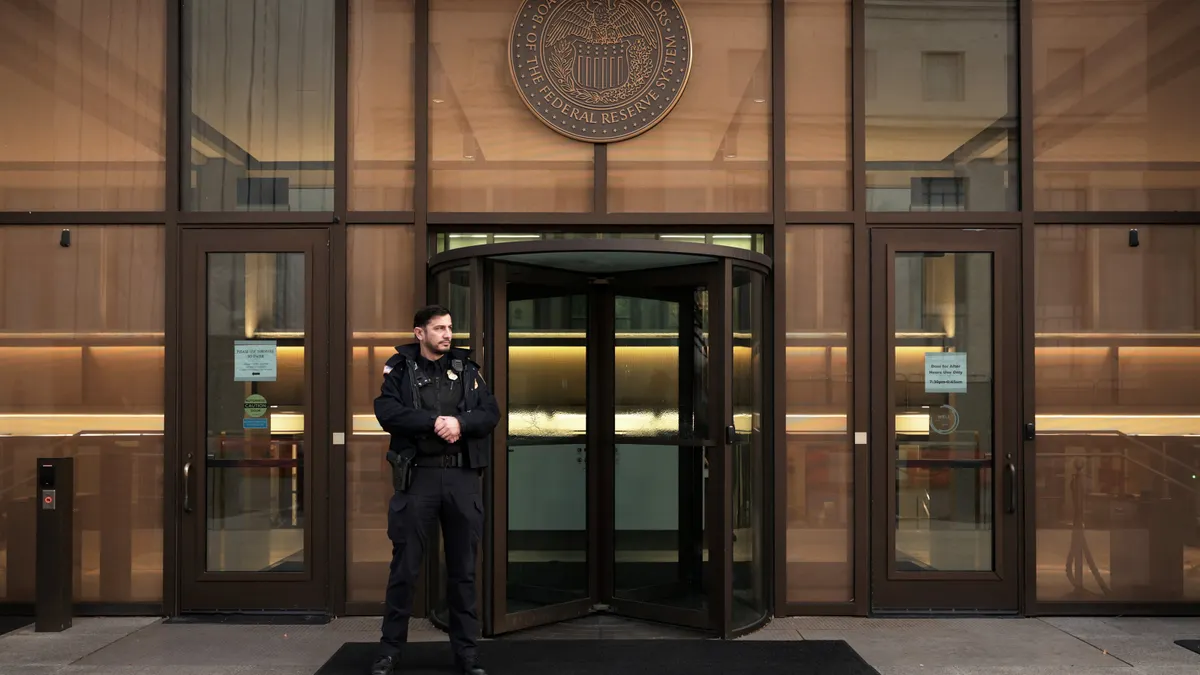U.S. senators Elizabeth Warren and Ron Wyden are pressing payments processor Fiserv to divulge information about how the company was run by ex-CEO Frank Bisignano, alleging mismanagement.
They’re concerned about possible past missteps by Bisignano, given he’s now leading the Social Security Administration, and last month was also appointed CEO of the Internal Revenue Service. Bisignano, who was also Fiserv’s chairman and president, held the CEO post between July 2020 and May 2025, when he left to join the Trump administration.
“Mr. Bisignano appears to have failed to manage Fiserv effectively, and may have misled investors and the public about the company’s financial status, raising concerns about his ability to serve as a key Social Security and IRS official in the Trump Administration,” the senators said in a Friday press release.
A spokesperson for Fiserv didn’t immediately respond Friday to a request for comment on the senators’ inquiry.
In a letter Thursday to the company’s current CEO, Mike Lyons, the senators asked pointed questions about Fiserv’s recent performance stumble, the reasons leading to its need to “reset” the business this month and potential “misconduct” by employees.
They suggested that Bisignano might be to blame for corporate shortcomings that emerged in the company’s third-quarter earnings report that fell short of expectations last month, contributing to a nearly 70% drop in the company’s stock so far this year. They also noted Bisignano’s divestiture of Fiserv stock in May and July helped him avoid losses of $300 million that might have resulted if he’d still owned the shares when the stock swooned.
“Since Mr. Bisignano left Fiserv, the company has faced a series of financial setbacks that call Mr. Bisignano’s management into question,” the senators said in the letter. They also noted that “because of Mr. Bisignano’s mismanagement, many Fiserv investors, including retirees and members of the public, lost money.”
The senators cited Fiserv trouble spots outlined in the company’s Oct. 29 earnings report, namely: a shortfall in revenue from operations in Argentina; a flawed forecast for the growth of its other businesses; and a reduction in costs and investments for short-term margins that are now short-circuiting longer-term revenue growth.
During the earnings call Lyons acknowledged the company’s deficiencies and said that the company had undertaken a “rigorous analysis.”
“Our current performance is not where we want it to be nor where our stakeholders expect it to be,” Lyons said in the earnings release. “With the actions being announced today, Fiserv will be better positioned to drive sustainable, high-quality growth and reach our full potential.”
The corporate revelations came as the company announced it was replacing its chief financial officer, naming two new co-presidents and adding three new members to its board in an effort to revamp Fiserv’s business.
“This drastic reversal raises significant questions regarding Mr. Bisignano’s conduct,” the senators wrote to Lyons.
The senators also said they had concerns about Fiserv winning a five-year Treasury Department contract last month at its Money Network Financial subsidiary, along with Fifth Third Bank. Warren is the top Democrat on the Senate Banking Committee and Wyden is the top Democrat on the Senate Finance Committee, but the chamber is controlled by Republicans.
The Treasury contract relates to the federal government’s Direct Express prepaid card program under which some Social Security, Supplemental Security Income and military veterans receive benefits. The senators asked about the timing of the bid and Bisignano’s knowledge of it.
Their questions also included queries about whether Bisignano has signed any non-disclosure agreements with the company that would prevent him from speaking about Fiserv leadership decisions. If so, they asked if Fiserv would waive the agreement so he could answer questions from members of Congress.
In addition to requesting more details about the company’s analysis, the Democrats also asked whether the company was undertaking a review that might reveal whether any employees had engaged in misconduct.





















